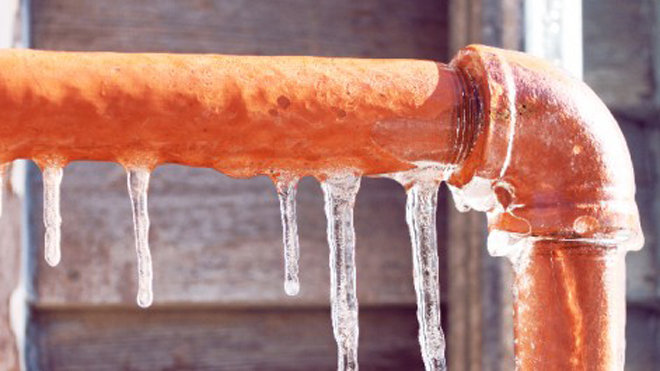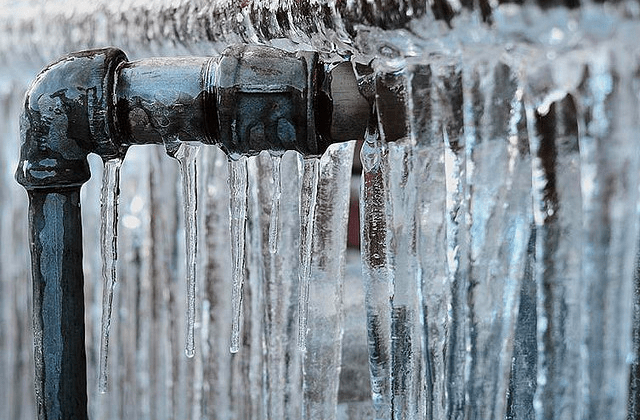Protecting Against Frozen Pipes in Cold Weather: Critical Strategies
Protecting Against Frozen Pipes in Cold Weather: Critical Strategies
Blog Article
We have uncovered this article relating to 6 Ways to Prevent Frozen Pipes listed below on the net and reckoned it made sense to share it with you on my blog.

Cold weather can ruin your pipes, particularly by freezing pipes. Below's how to avoid it from happening and what to do if it does.
Introduction
As temperatures decrease, the danger of icy pipelines increases, potentially leading to costly fixings and water damages. Recognizing just how to stop icy pipelines is vital for home owners in cool climates.
Understanding Frozen Pipelines
What triggers pipelines to freeze?
Pipes ice up when subjected to temperatures listed below 32 ° F (0 ° C) for prolonged periods. As water inside the pipelines ices up, it expands, taxing the pipeline wall surfaces and possibly causing them to rupture.
Risks and damages
Frozen pipes can result in supply of water disruptions, home damage, and pricey repair work. Ruptured pipelines can flooding homes and create extensive structural damage.
Signs of Frozen Pipes
Identifying frozen pipes early can prevent them from bursting.
How to recognize icy pipelines
Try to find reduced water flow from taps, uncommon odors or noises from pipelines, and visible frost on exposed pipelines.
Avoidance Tips
Shielding at risk pipelines
Wrap pipelines in insulation sleeves or utilize heat tape to shield them from freezing temperatures. Concentrate on pipes in unheated or external areas of the home.
Home heating methods
Maintain interior spaces effectively warmed, specifically locations with pipes. Open cupboard doors to allow cozy air to distribute around pipelines under sinks.
Protecting Outside Plumbing
Garden tubes and outdoor taps
Disconnect and drain yard hoses before winter months. Install frost-proof spigots or cover outside faucets with insulated caps.
What to Do If Your Pipes Freeze
Immediate actions to take
If you presume icy pipes, maintain faucets open up to relieve stress as the ice thaws. Use a hairdryer or towels taken in warm water to thaw pipes gradually.
Long-Term Solutions
Structural changes
Consider rerouting pipelines far from exterior wall surfaces or unheated locations. Add additional insulation to attic rooms, basements, and crawl spaces.
Upgrading insulation
Purchase high-quality insulation for pipes, attics, and wall surfaces. Correct insulation helps preserve constant temperature levels and lowers the risk of frozen pipes.
Conclusion
Stopping icy pipelines needs positive procedures and fast actions. By recognizing the reasons, indications, and safety nets, house owners can safeguard their plumbing during cold weather.
Helpful Tips to Prevent Frozen Pipes this Winter
UNDERSTANDING THE BASICS: WHY PIPES FREEZE AND WHY IT’S A PROBLEM
Water freezing inside pipes is common during the winter months, but understanding why pipes freeze, and the potential problems it can cause is crucial in preventing such incidents. This section will delve into the basics of why pipes freeze and the associated problems that may arise.
THE SCIENCE BEHIND FROZEN PIPES
When water reaches freezing temperatures, it undergoes a physical transformation and solidifies into ice. This expansion of water as it freezes is the primary reason pipes can burst. As the water inside the pipe freezes, it expands, creating immense pressure on the walls. If the pressure becomes too great, the pipe can crack or rupture, leading to leaks and water damage.
FACTORS THAT CONTRIBUTE TO PIPE FREEZING
Low Temperatures: Extremely cold weather, especially below freezing, increases the risk of pipes freezing. Uninsulated or Poorly Insulated Pipes: Pipes located in unheated areas, such as basements, crawl spaces, or attics, are more prone to freezing. Insufficient insulation or lack of insulation altogether exacerbates the problem. Exterior Wall Exposure: Pipes running along exterior walls are susceptible to freezing as they encounter colder temperatures outside. Lack of Heating or Temperature Regulation: Inadequate heating or inconsistent temperature control in your home can contribute to frozen pipes. PROBLEMS CAUSED BY FROZEN PIPES
- Pipe Bursting: As mentioned earlier, the expansion of water as it freezes can cause pipes to burst, resulting in significant water damage.
- Water Damage: When pipes burst, it can lead to flooding and water damage to your property, including walls, ceilings, flooring, and personal belongings.
- Structural Damage: Prolonged exposure to water from burst pipes can compromise the structural integrity of your home, leading to costly repairs.
- Mold and Mildew Growth: Excess moisture from water damage can create a favorable environment for mold and mildew growth, posing health risks to occupants.
- Disrupted Water Supply: Frozen pipes can also result in a complete or partial loss of water supply until the issue is resolved.
WHY CERTAIN PIPES ARE MORE PRONE TO FREEZING
- Location: Pipes located in unheated or poorly insulated areas, such as basements, crawl spaces, attics, or exterior walls, are at higher risk of freezing.
- Exterior Pipes: Outdoor pipes, such as those used for irrigation or exposed plumbing, are particularly vulnerable to freezing as they are directly exposed to the elements.
- Supply Lines: Pipes that carry water from the main water supply into your home, including the main water line, are critical to protect as freezing in these lines can affect your entire plumbing system.
- Underground Pipes: Pipes buried underground, such as those connected to sprinkler systems or outdoor faucets, can be susceptible to freezing if not properly insulated.
https://busybusy.com/blog/helpful-tips-to-prevent-frozen-pipes-this-winter/

Do you enjoy more info about How to prepare your home plumbing for winter weather? Create feedback down the page. We would be glad to see your responses about this page. We hope that you visit us again later on. Liked our blog? Please quickly share it. Let another person check it out. Bless you for your time. Don't forget to check up our blog back soon.
Click On This Link Report this page